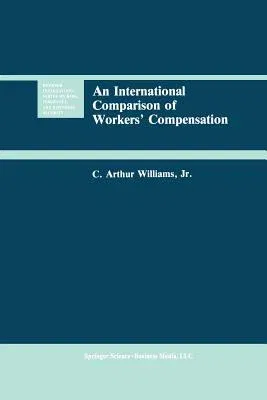C Arthur Williams
(Author)An International Comparison of Workers' Compensation (Softcover Reprint of the Original 1st 1991)Paperback - Softcover Reprint of the Original 1st 1991, 28 September 2012

Qty
1
Turbo
Ships in 2 - 3 days
In Stock
Free Delivery
Cash on Delivery
15 Days
Free Returns
Secure Checkout
Part of Series
Huebner International Risk, Insurance and Economic Security
Part of Series
Huebner International Series on Risk, Insurance and Economic
Print Length
221 pages
Language
English
Publisher
Springer
Date Published
28 Sep 2012
ISBN-10
9401057230
ISBN-13
9789401057233
Description
Product Details
Author:
Book Edition:
Softcover Reprint of the Original 1st 1991
Book Format:
Paperback
Country of Origin:
NL
Date Published:
28 September 2012
Dimensions:
23.39 x
15.6 x
1.3 cm
ISBN-10:
9401057230
ISBN-13:
9789401057233
Language:
English
Location:
Dordrecht
Pages:
221
Publisher:
Series:
Weight:
344.73 gm

